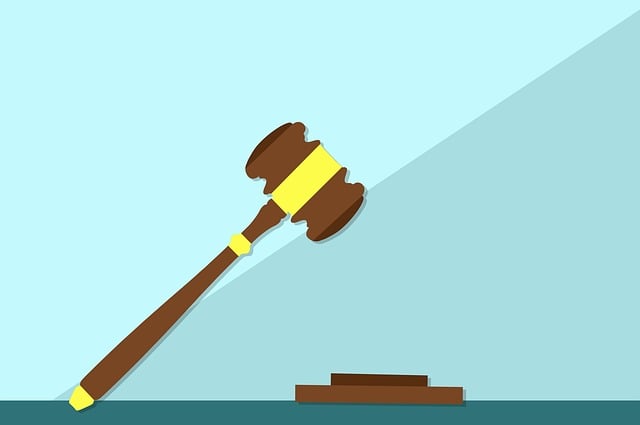The RF Securities Industry Regulation, aimed at protecting investors and maintaining fair practices, faces significant hurdles due to complex financial transactions and white-collar crimes. The Challenges in Meeting Burden of Proof in Court are exacerbated by intricate relationships across regions, making it difficult to prove misconduct. Regulators must adapt to evolving technologies like derivatives, algorithmic trading, and blockchain while implementing robust data management strategies for effective compliance and evidence preservation. Staying informed about legal precedents and fostering transparency through training programs is crucial for navigating this complex environment successfully.
“Navigating the complex landscape of RF Securities Industry Regulation is essential for understanding market integrity. This article offers a comprehensive overview, delving into the current proof requirements in legal proceedings and exploring challenges posed by sophisticated financial instruments and technology. With ‘Challenges in Meeting Burden of Proof in Court’ as a focal point, we present strategies to enhance compliance, ensuring fairness and transparency in the RF Securities sector.”
- Understanding RF Securities Industry Regulation: A Comprehensive Overview
- The Current Landscape of Proof Requirements in Legal Proceedings
- Challenges Arising from Complex Financial Instruments and Technology
- Strategies to Enhance Burden of Proof Compliance in the RF Securities Sector
Understanding RF Securities Industry Regulation: A Comprehensive Overview

The RF Securities Industry Regulation is a complex and evolving landscape that demands meticulous attention to detail and a deep understanding of legal frameworks. This regulatory environment is designed to protect investors, ensure fair market practices, and maintain the integrity of financial markets. However, navigating these regulations presents significant challenges, particularly when it comes to meeting the burden of proof in court cases.
One of the primary hurdles lies in the intricate nature of financial transactions, which often span across the country and involve complex web of relationships. Proving fraudulent activities or misconduct requires robust evidence and a thorough understanding of the nuances involved. Moreover, white-collar and economic crimes cases are known for their technical aspects, making it a daunting task to present a compelling case that leads to winning challenging defense verdicts. Effective regulation should streamline these processes while ensuring that all parties are held accountable, fostering a transparent and trustworthy securities market.
The Current Landscape of Proof Requirements in Legal Proceedings

The current landscape of proof requirements in legal proceedings presents a complex web of challenges for RF Securities industry participants. With stringent regulations and heightened scrutiny, achieving extraordinary results in white collar defense or general criminal defense cases demands meticulous attention to detail and adherence to strict evidentiary standards. The burden of proof in court has become increasingly demanding, requiring robust documentation, detailed records, and comprehensive explanations to support claims.
Navigating these challenges necessitates a strategic approach. Legal professionals must be adept at gathering and presenting irrefutable evidence while addressing the complexities of regulatory compliance. Moreover, understanding the nuances of different legal domains is crucial, as proof requirements vary significantly between civil and criminal cases, each with its own set of rules and expectations. This dynamic environment underscores the importance of staying abreast of evolving legal precedents and adapting strategies accordingly.
Challenges Arising from Complex Financial Instruments and Technology

The securities industry faces significant challenges when it comes to regulation, particularly with the increasing complexity of financial instruments and rapid advancements in technology. As markets become more intricate, with innovative products like derivatives, algorithmic trading, and structured notes, the task of oversight becomes daunting. These complex instruments can lead to regulatory gaps, making it difficult to enforce rules and ensure fair practices. For instance, understanding and interpreting these advanced financial tools in legal contexts pose a substantial hurdle during all stages of the investigative and enforcement process.
Moreover, the fast-paced nature of technology creates a dynamic environment where regulators struggle to keep up. High-frequency trading, blockchain, and artificial intelligence are just a few examples that have reshaped traditional investment practices. These technological advancements can make it harder to trace transactions, verify data integrity, and prove misconduct in court. The “Challenge in Meeting Burden of Proof in Court” becomes more pronounced when dealing with these modern trading methods, potentially leading to cases where all charges are dropped due to the complexities involved.
Strategies to Enhance Burden of Proof Compliance in the RF Securities Sector

The RF Securities industry faces unique challenges when it comes to meeting the burden of proof in court. Due to the complex nature of financial transactions and the potential for disputes, regulators must implement robust strategies to ensure compliance. One significant challenge is navigating the vast amount of data and documentation required to support or refute allegations. Financial institutions need to develop efficient systems for data management and preservation to meet the stringent legal requirements. This includes implementing secure digital archives and ensuring that relevant records are easily accessible during investigations.
Moreover, effective communication between legal teams and employees is vital. Training programs should be designed to educate staff about their obligations regarding documentation and record-keeping. By fostering a culture of transparency and cooperation, firms can streamline the process of gathering evidence, making it easier to meet the burden of proof. Additionally, staying updated with evolving regulatory standards and case laws related to general criminal defense is essential for corporate and individual clients alike, aiming for complete dismissal of all charges.
The regulation of the RF securities industry faces significant challenges, particularly in meeting the burden of proof in court. With complex financial instruments and rapid technological advancements, ensuring transparency and accuracy in legal proceedings is more crucial than ever. This article has explored the current landscape, highlighting the complexities that arise from these factors. By implementing strategic solutions to enhance burden of proof compliance, industry participants can navigate these challenges effectively, fostering a robust and trustworthy RF securities sector.






